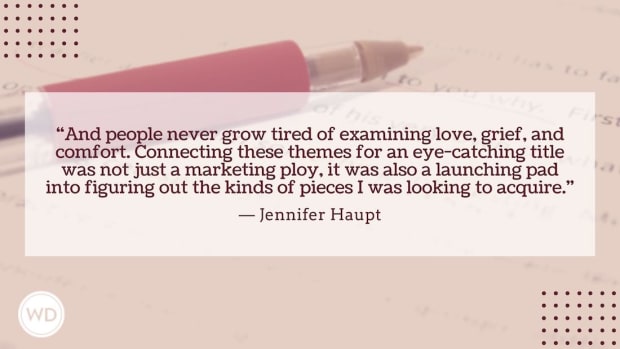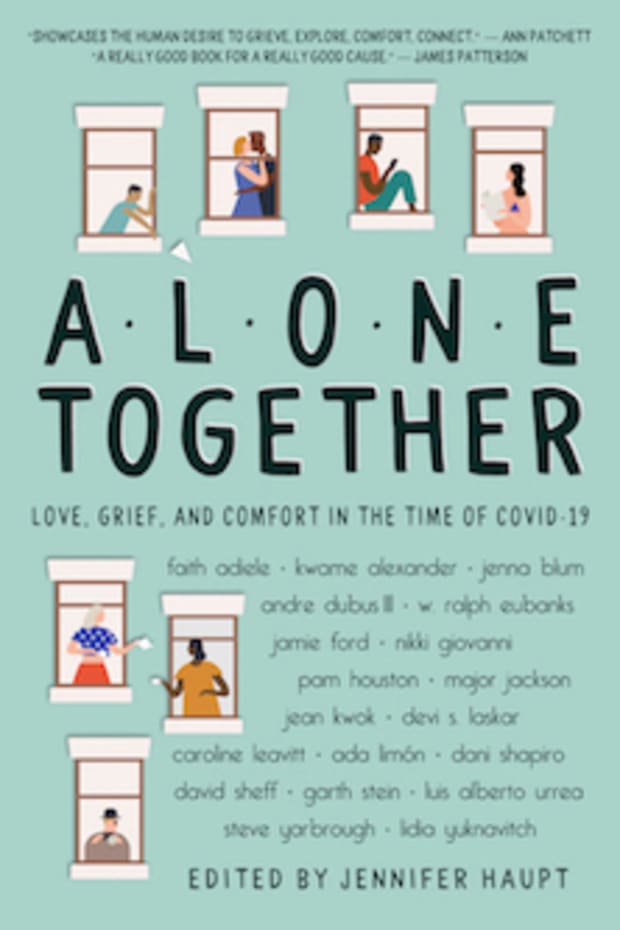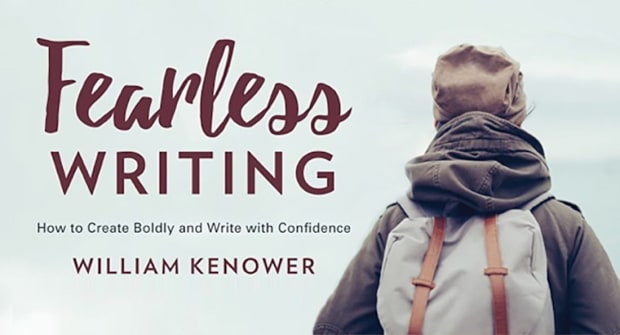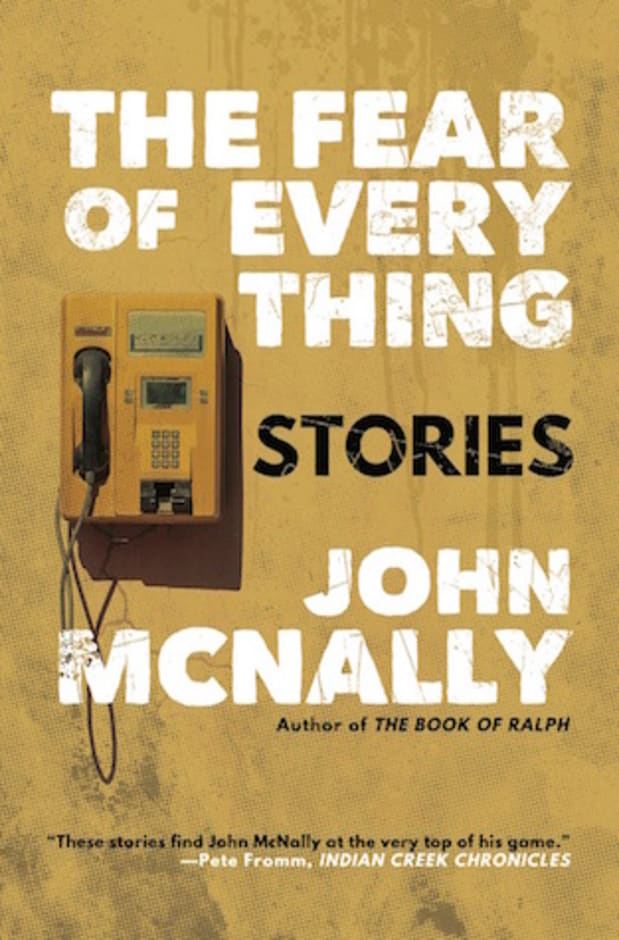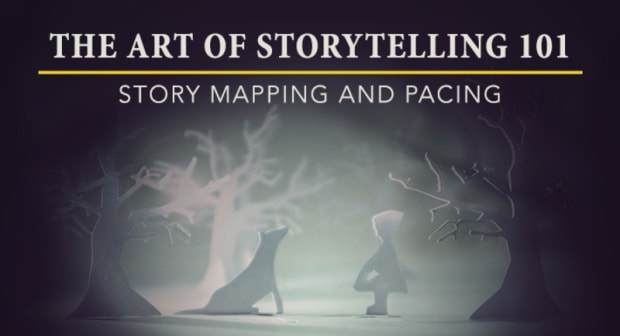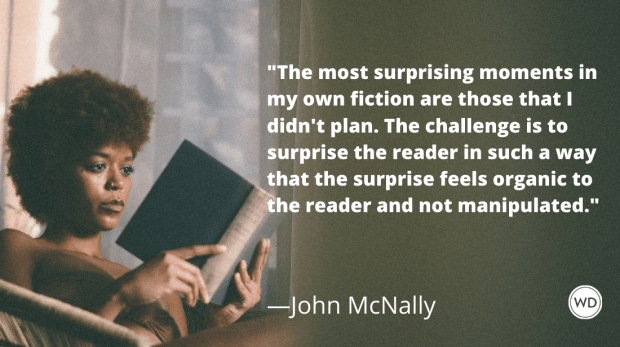“Pros and Cons” by Jenny Bhatt
For the first session of the day, Urmi stands next to Jaideep on the dais. He makes eye contact with the five students—holding each one’s gaze for a couple of seconds before moving to the next. In Hindi, he murmurs to her, “As if their limbs are about to break off,” and then that flashing brilliance of a smile.
Urmi scans the room too. It is near the end of the week-long yoga retreat. By this point, almost every student’s face is marked with the ascetic suffering of an ancient saptarishi. They rarely imagine yoga to be hard work—more so emotionally than physically. And this class has had more of a strenuous workout because of the atypically smaller size.
Ankita rests against a wall massaging a lavender-infused lotion onto her hands and, as if absentmindedly, the red and black fleur-de-lis tattoo around her belly button. Her branded yoga wear draws the eye to every curve and swell. Next to her, Bernd, the German, flexes his biceps and keeps shaking his bow legs out as if getting ready for a run. His bald head glows redder under the fluorescent lights. Behind them, the two American women whose names Urmi cannot keep straight—Blonde and Blonder, she has named them privately—titter to each other. They’ve nested themselves with bricks, belts, bolsters, and bottles around their mats. And at the very end, Farrokh, who is either from Oman or Yemen, slumps against the back wall. His hooded eyelids confirm that he has already enjoyed a pre-class spliff.
Urmi looks down at her feet, sucking her stomach in so she can see more than her toes. They often pair her with the newer instructors like Jaideep to “break them in.” And though he comes with some teaching experience, Jaideep has made her more aware of how, with each such break-them-in instructor—mostly male, mostly good-looking—she gets older while they remain about the same age. Enunciating each English syllable carefully because Blonde and Blonder always remind him to speak slower, Jaideep describes again why sun salutations are important in every kind of yoga practice. Demonstrating the twelve-step sequence as if he hasn’t been doing it every day of his career, he calls out the names of each asana in both English and Sanskrit and points to the placement of each foot and hand, and nods toward the direction of the eyeline. In each asana, his entire being ripples with a strength that seems to nourish them all. As they join him, Urmi walks around to check their form—adjusting a drooping arm, nudging a straying foot, aligning a tilting head.
Ankita, not quite twenty yet, needs the most attention. Although, Urmi suspects, it is not her attention so much as Jaideep’s that the girl seeks with her audible grunts and shallow breaths.
“How much of this basic stuff do we have to do?” Ankita says as Urmi straightens her knee. She has asked this every morning although she can’t get through even three rounds without those cries and gasps.
“How many could you manage a week before?” Urmi says.
“What?”
“At least twelve rounds done in full,” Urmi says, placing a finger on her lips.
The girl opens her mouth to speak again but turns to Jaideep instead. After a couple of beats, she drawls, “Oh . . . ‘kay . . .” still staring at him. His silhouette is radiant from the light of the rising sun behind him. The ocean beyond is a writhing sheet of blue-grey silk.
As she scatters her gawky limbs along the floor for Chaturanga, Ankita’s hair tumbles down from her topknot and she wobbles to her left. Jaideep steps off the dais and goes over immediately.
“Straight hips, Ankita,” he says, placing his hands on her waist before lowering them to her hips to twist and thrust them down. As he steps away, his hands round over the small firmness of her butt. “Good,” he says with a pat.
Her expression is fragile and with a joy-like shimmer on it.
Very suddenly, he lays down on the floor beside her and raises his palms and feet. “Here,” he nods at her.
Ankita widens her eyes. Urmi sees the rush of red to her cheeks. He nods again. The girl moves sideways over him, mapping her fingers and toes to his so they interlock. The rest stop to watch. Grasping, he lifts her even higher. She is looking down on him with about a foot between them. Her hair grazes his shoulders and chest. She teeters a bit. He grips her harder. She giggles.
“That’s it!” Jaideep bellows. “See the balance now!”
They all look. Urmi looks too and feels the entire room focused on the two figures. There is something about the way they are clutching at each other with all fours: her faith and his power holding them together.
“Up,” Jaideep commands.
Ankita arches her shoulders so that her breasts thrust forward and her face rises like a fresh blossom.
In that moment, she is any young, skinny girl: eager to please, alternating between simpering and simmering modes, contorting herself readily for the world’s approval. An approval that, Urmi has come to realize, never lasts and is never enough.
The pose holds; Ankita’s focus and balance are flawless. Then, she collapses onto Jaideep and the moment passes.
Urmi watches as Jaideep stands, helping the girl to her feet as well.
“Excellent,” he beams at everyone.
After breakfast, the students wander about the private beach. Blonde and Blonder wade into the water, letting off peals like twin temple bells; Bernd settles with his iPad on the open porch, staying close to the weak wifi router; and Ankita and Farrokh fling a frisbee about on the sand, neither managing to catch it before it falls each time.
It is Urmi’s first time at this location and she has not been sleeping well in this storybook palace with its high-ceilinged rooms and uniformed staff. Time seems to have slackened as if dragging itself forward from the previous century. Every night, she has lain on the Victorian bed in her room, staring at the full-length mirror across for hours. In the dark, the reflection of the iron bed-frame—with its intricate floral flourishes, opulent scrolls, and antique knobs—floats and shifts about like some hulking otherworldly creature.
The breeze, though cool, carries traces of sand that feels gritty against her skin as she sits on the porch steps. She had read online that, after September, the weather gets unpredictable in this part of the country and most of these fancy resorts close up till after the New Year. A raggedy old man, hunched over with a cattail basket filled with football-sized green coconuts on his back, appears trudging as if from nowhere. The women run to him. As if frightened by their excitement, he mumbles and hurries on, one heavy step after another on the gold-white sand.
The session before lunch is their last anatomy lecture of the week. The local doctor, hired at an exorbitant rate for a daily hour and a half, arrives fifteen minutes late. She hands out square booklets with cartoon figures and dense paragraphs in tiny typography. Chuckling nervously at her own jokes, she keeps asking for Jaideep or mentioning his name. Urmi sits in the back with her headphones on, trying to hold off asking one of the staff again to hunt down the frequently disappearing instructor.
Lunch is a quick meal, then everyone lazes about on the bamboo recliners in the shaded corner near the coconut grove. At some point, the women bury Bernd to his stomach in sand while Farrokh keeps saying, “Duuuude,” as if a terrible thing is happening. When Jaideep finally shows up, he sits on the recliner next to her and pulls off her headphones.
“Welcome, O Moon of Eid,” Urmi lights two cigarettes and hands him one. They watch the women skipping around Bernd’s bare torso while he tries to catch a leg or two. After savoring a couple of drags, she asks, “What are the pros and cons of doing this?”
Jaideep raises his eyebrows. “This?”
He has changed into a rose-colored kurta, unbuttoned and crumpled. Closer, he is like those old-school Hindi movie heroes from the ’60s and ’70s with their studied, practiced charm.
“This. All this.” She draws a large circle in the air with both hands. He shakes his head so she continues. “Teaching yoga for a living to rich men and women who won’t remember any of it—or you—in a month.”
Placing a pair of sunglasses onto his nose, he waggles his chin in a droll, dramatic manner and says, “All is fleeting. Time flows endlessly like this ocean.”
“Oh, come on.” Urmi smirks. “You can do better than that. There are plenty of perks, obviously. There must be some cons too.”
The wood creaks as Jaideep lies back as far as he can go. “Sure,” he says, “as with everything in life, hain na?”
“Tell me,” says Urmi.
A wind has picked up, making the trees behind them swish and sigh. The women have changed to swimwear and are shrieking as they run into the tossing waves.
“You don’t think it’s a decent way to make a living?” he asks.
She clicks her tongue at him, annoyed that he has turned the question around on her.
Flicking away his cigarette butt, Jaideep signals a uniformed man closer and tells him to bring lemon sherbet. When the cold, sweating glasses arrive, buzzing flies land on their rims. He swats them away and gives her a glass.
“To making pros out of cons,” he says, raising his glass to her.
Urmi sits up and throws her head back, exposing the length of her neck. She feels him watching her throat move as she swallows. “To conning the pros,” she says back.
The students come over, clustering in twos on the available recliners. Ankita, dripping wet from the dip, perches on the edge of Jaideep’s recliner. They talk about going out as it is their last night.
“There are no restaurants or clubs nearby,” Jaideep tells them again, removing his sunglasses. “The driver will have to take you close to the airport and wait.”
Ankita pouts with the perfect duck face and slouches next to his arm.
“My back,” she moans.
Jaideep glances at Urmi and presses a palm on Ankita’s slick back, then runs it up and down. She shivers and scrambles closer so that her head is almost nestling in the crook of his shoulder. With blazing adoration, she looks up at him. A hush falls.
She squirms against Jaideep, trying to get his hand to go lower. It does not. Giving up, she scrambles back onto her feet. “Well,” she says, her voice brittle, “Another swim. Come one, come all?”
The others join her as if obeying an order.
Ankita squeals and jumps onto Bernd, making him stumble forward. Jaideep says, “Oye hoye, patakha guddi . . .” in a guttural, singsong tone.
When he lays back with his arms under his head, Urmi reaches over and touches him. Lightly at first, then with urgency.
Jaideep blinks sharply at her and his lips part.
How you can just do this to a man, she thinks, and get his complete attention. Even though that attention does not always work to your advantage. She was probably younger than Ankita when she had discovered the first of those two things.
Lifting her half-empty glass with her free hand, she sips without removing the other hand.
“What are the pros and cons of this?” she says.
His face flushes to almost the same shade as his kurta. “Let’s go upstairs,” says Urmi.
They walk into the hotel and climb the single flight of stairs to the rooms. Urmi sways her hips against his. She is more nervous than she has been in a while. At the top, Jaideep tugs at the fastening of her pants. Heat erupts between her legs and rises up through her belly.
“Your room,” she says, pushing him to the end of the corridor.
Jaideep’s room is considerably larger than hers and the bed is a mahogany four-poster with thick burgundy damask stripe bed linens. There are screened floor-to-ceiling windows and distant yelps and shouts drift up along with humid, fishy odors. He closes the bedroom door and goes into the bathroom. She stands by one of the windows and sees boats and nets laid to dry out below, toward the left. An endless expanse of water spreads to the right.
When the toilet flushes, she stands up straighter, waiting for him to come up behind her. Instead, the bed groans as he pitches himself across it.
“There’s good and bad about this view,” she says, leaning out.
“Everything has to be about pros and cons?”
“Maybe. Yes. Why not?”
“Why not . . . just take things as they come?”
“Arrey . . . because you want to be prepared.”
“Are you always prepared?”
“Nope,” she raises her arms high to the top of the window frame, standing on her tippy-toes, and leans further out.
Jaideep is quiet.
Pivoting away from the window, she catches herself in the wall mirror opposite the bed.
“Well, then?” He also looks at her reflection.
Urmi takes off her top. Her breasts are round, if not perky; full, if not bouncy. She tries to take care of herself but the aging process continues to astonish her.
She turns around to him. “But at least I’m ready for the worst then.”
Sprawled on the bed, his arms and legs are flung wide. His longish, uncombed hair is more tousled than ever. And his quick yoga instructor’s eye assesses her.
She knows he has seen better form. She wants to cover herself up again. Instead, she asks, “Changed your mind?”
He shakes his head.
A gust of salty air from the window is like a blow on her naked shoulders and back. Nearby, on the edge of the TV stand, there is a cigarette pack. She walks to it, takes two out, then sifts among the notes, coins, cards, and crumpled payment receipts for a lighter. A battery-thin platinum one has the letters “ANKITA” spelled out with sparkling rhinestones.
“What do you think of her?” She says, picking up the lighter and brandishing it.
“Pros and cons?” He laughs.
“She’s mad about you,” Urmi says, “It’s more than a crush.”
“Patakha Guddi?” he says, “She’ll be married off to some lakhpati-crorepati in a couple of years.”
Urmi twirls the lighter. She is reminded of the first time she saw the girl hand it to Jaideep—at the airport when they were all waiting for the bus that would bring them here. The two had instantly become friendly and sat together in the back for the two-hour journey. She had sat in the front, just behind the driver but had listened to Ankita’s giggling and Jaideep’s gravelly murmuring almost the entire way.
“So. All yours now?” she asks, flicking her thumb so that a flame jumps up.
Jaideep props himself up on one arm. “No, baba. Too dhinchak for me.”
“Sure, boss,” Urmi says.
She puts the unlit cigarettes and the lighter back and moves toward him. Lust and jealousy, she thinks, always make a good combination. Sitting on the bed, she wonders what it would have been like if he had made the first move. She would have liked him to. But men like him don’t do that with women like her.
She lies down beside him, easing into a stretch that releases some of the knots in her. “So,” she says, “are you going to show her your Kama Sutra asanas?”
“What?”
“Ankita.”
“Are you always so . . .?” he asks.
She puts her hands around his face, brings it down to hers, and kisses his mouth with a fierce hunger. It tastes of mint against her smokiness. Should she have gone to her room and brushed her teeth too? Pulling his kurta up, she presses herself against his skin, which smells of the ocean. His chest is not as hairy as she had imagined.
“What is it, yaar?” he peers at her. Then, he pushes her back and, with a single motion, removes her pants and underwear so smoothly that she wants to congratulate him. Instead, she runs her nails down his arms—the arms she has been watching all week in various asanas—leaving long, white scratches on them. He doesn’t make a sound. His eyes are half-closed as if intoxicated. She could be any woman. And yet, she has him in this moment now.
Later, when even the noises outside have died down in the evening twilight, they lie side by side. The sweat is drying off their bodies in the now-cooler breeze from the windows.
“I stayed in a palace like this once in Jaipur. When I was in the salon business and went to weddings to do bridal parties,” she says, licking her dry lips.
“Salon business?”
“Yeah,” she says, “I’ve had a few different careers.” She rolls on her side, facing him. “I used to be young and pretty then. People thought I was one of the rich and famous too when I got all dressed and made up.”
“You don’t think you’re pretty now?” Jaideep says. Urmi says nothing.
Jaideep places a hand at her waist, moves it at a measured pace up her arm and shoulder, and lets it stop in the curve of her neck.
“How old are you?” he asks.
“Forty-five.”
“Wow.”
She touches the cradle of her hips, where his hand had not been. “I did the teacher training course ten years ago. Thought I would have my own yoga studio by now.”
“What’s stopping you?”
Silence fills the room. Urmi thinks she should leave. This conversation is not what she wanted. What did she want? Whatever it was, the good part—the pro—is over. This is the con part.
“What were the other careers?” His fingers are playing gently with her earlobe now.
She moves his hand away and sits up. “Don’t do this.”
“You don’t like conversation?”
“Yeah,” she says, swinging off the bed. “Too many questions.”
Going to the TV stand, she lights two cigarettes and offers him one. It’s a useful trick she learned from a past lover. Smoking means less talking. Though, it doesn’t prevent other undesirable, even dangerous, things from happening.
“Which was your favorite job of all?” Jaideep asks, stubbing his out in a glass, unsmoked.
“None. Dunno. Never stuck at any long enough to really find out. If I got bored or I wasn’t good at it, I left.” Urmi shrugs.
“You’re good at this—teaching,” Jaideep smiles, holding out both arms to her.
Relenting, she stubs out her cigarette and goes to him.
“I don’t think so,” she says, lying back down. “I might find something else. With less travel.”
“Travel? Part of the pros, hain na?”
“Only if you’re an instructor.” She sighs. “Anyway, I’ve never even led a class on my own since the certification exam. I don’t have that expert confidence.”
Jaideep nods. “I never have enough confidence in front of a full room. But I love to push my body as far as I can and to show— teach—others what theirs can do too. So, bas, that’s what I do.”
As if he has shared an intimate secret, she whispers back, “Yes, that’s what I love too.” She should have left ages ago, probably. She might stay only a few more minutes.
Spinning onto her side again, she puts a tentative hand out toward him. He grabs it and places it onto his stomach, holding it there.
“Did you never . . . want to settle down?” Jaideep asks.
This question is one of the reasons she hates getting into any question-and-answer game. Sooner or later, it comes up. She tries to take her hand away but he holds it tighter.
“I was. Settled. Once. I left him,” she says. “That’s all you’re getting.”
Jaideep relaxes his grip on her hand and moves it up to his chest. A low hum vibrates from his diaphragm.
That sudden resonance and the even rhythm of his heart are soothing. She feels the tension of her clenched jaw and loosens it.
When Jaideep lets her hand go, she leaves it there.
“It’s not everything people say it is—being settled.” He uses air quotes for the last word. He speaks so softly now, she could cry.
Moving up close, he slides a leg between hers. Raising her chin, he says, “Pros and cons, hain na?”
He’s teasing her now, she knows. She cannot speak; her throat hurts.
They remain still like that for three, maybe five, minutes—her hand on his chest, his leg between hers. Then he whirls her up above him and laughs, “Well, then. Show me what you can do, Miss Yoga Instructor.”
The group assembles the next morning, their exhaustion tinged with relief because this is the last class before everyone leaves for separate destinations. At this hour, the light from the windows all around the studio is so pale, it has also bleached the ocean almost white.
Jaideep and Urmi are a full ten minutes late. The room’s restlessness is palpable when they enter. As they take their usual spots on the front dais, Jaideep scratches his overnight stubble distractedly. Urmi, standing alongside, feels his every movement as if he is touching her. Five pairs of eyes stare curiously at them. Urmi wonders if they have guessed. She hopes so.
“Asleep on their feet,” she murmurs to him in Hindi.
“Them? Or us?” His sense of humor, at least, is still alert.
“Both.”
She flies out tomorrow to another part of the country to assist another instructor. He leaves today to instruct some other group in some other place too.
“Pros and cons to that,” she adds after a beat.
Hand still on chin, Jaideep grins at her, “Yes, true.”
He steps forward and addresses the group. “Urmi is teaching this last class. I must see to some travel arrangements. My apologies.”
Reaching an arm back, he takes her wrist and draws her forward. She looks at him, mouth slightly open.
“Well, then. Show us what you can do, Miss Yoga Instructor,” he says and her stomach flips over. He squeezes her fingers before letting go.
As he walks out, Urmi notices Ankita’s eyes narrowing into slits of ice. The girl sags against the wall.
Urmi takes a deep breath. But there is something thrilling in having the room all to herself; in having everyone’s attention to herself. She hasn’t felt like this in such a long time that she cannot even recall when. She starts them off with six leisurely rounds of sun salutations.
Ankita shows her rebellion by not holding any asana for the required duration and acting as if she’s only going through the motions. When Urmi goes over to encourage her to raise her arms straighter, the girl does not respond. There is something wounded in her, something unyielding. Her chin juts out so that the line of her jaw is sharp, and her eyes are glittering bright.
Urmi marvels at how the girl’s infatuation or crush or whatever it is for Jaideep has developed so rapidly in a matter of days; how it is as savage as a wild animal inside of her. And, just as easily, in a couple of months or so, Urmi thinks, she will recall this time only when she sees the photos on her phone. In a year or so, she will likely not even remember the names of people she has met here. Several years later, she will share the story of her luxury beachside yoga retreat with that lakhpati-crorepati husband’s friends over some elaborate dinner, joking about how the male instructor flirted with her in class.
“Come on, Ankita,” Urmi coaxes, “a few more rounds.”
“I’m aching all over,” Ankita glares past Urmi at the liquid gold of the ocean through the windows.
“You’re going to let a bit of pain stop you?” Urmi signals to the rest to continue.
Ankita’s mouth tightens.
Next to that sulky gloom, Urmi allows herself a little surge of pride. “It’s a good kind of ache. I mean, you get beyond a point and it stops hurting. You’re stronger then. Here, let me help you,” she says.
“Jaideep knows how to help me.” Ankita says, looking every bit the frail child she is.
How easily, Urmi thinks, we place our trust everywhere except in the one precious sanctuary that is ours alone, ours forever. She smooths the stray hairs away from Ankita’s forehead and the girl startles like a bird.
Going back to the dais, Urmi sits cross-legged on her mat, waiting while the class follows suit. Then she announces, “We’re going to do something new. A parting gift from me.” She pauses carefully before adding, “Let your body’s wisdom guide you. Trust your body—it knows you best.”
And she begins to take them through a slow Yin yoga session, guiding them through deeper stretches than they have done all week. Holding each floor-based asana for a longer duration than the one before, she encourages them to loosen and relax various individual parts of their bodies. Speaking in a low, languid tone, she asks them to let everything—thoughts, emotions, sensations— flow and fall away.
Sunlight streams onto their supine forms. Like a single body, they all inhale and exhale together. The energy in the room becomes so calm and still that the only sounds, other than her voice, are the waves breaking and birds chirping.
Something is shifting and changing within her too though she does not try to identify what or why. A deep-rooted hardness is thawing inside. An ever-present weight is lifting away. She feels light enough that she could glide in mid-air.
Without moving, she senses that Jaideep is standing in the doorway. A warmth washes over her as they look at each other. Between them, the students lying on the floor are like gossamer threads connecting them. When he lifts an arm in farewell, the ache that begins inside her is, she knows, the good kind. The need it reveals has nothing to do with him.
In a month or so, Urmi thinks, she will still remember this week as vividly as the day before. In a year or so, she will still recall the man in his crumpled rose kurta and sunglasses lying back on a recliner as if he is right next to her. And, a couple years later, when she is running her own studio, she will still evoke the touch of his hands on her skin and the sound of his words: “Show me what you can do, Miss Yoga Instructor.” But now, as she looks away from the empty space he has left and back to her class, she knows this is her moment to make all those future ones possible.
The post The Secret Lives of Yoga Instructors appeared first on Electric Literature.
